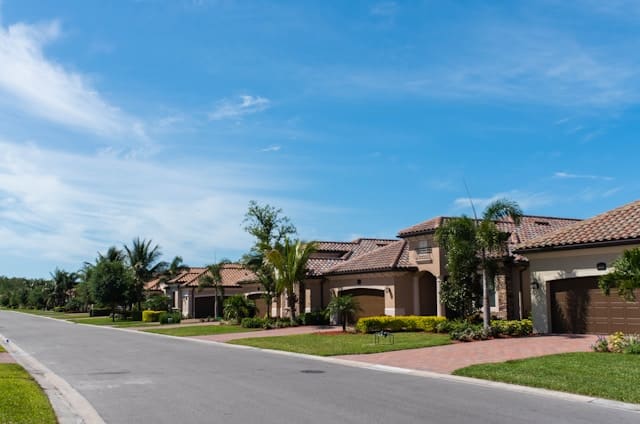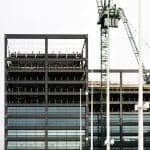In the realm of property development, converting former industrial sites into residential housing is a growing trend. The process, whilst complex, offers a unique opportunity to reuse and repurpose buildings that have outlived their original purpose. This trend is not only ecologically sound but also caters to the increasing demand for residential spaces, particularly in urban areas. This article will guide you through the process of converting an industrial property into a residential complex in the UK, covering topics such as planning permission, building conversions, and the role of developers in this undertaking.
The Pre-Planning Stage
Before embarking on a property development project, it is crucial to understand the importance of the pre-planning stage. This phase is pivotal in determining the feasibility of converting an industrial site into a residential complex. Thorough research, analysis, and a comprehensive understanding of the property’s potential are all part of this initial phase.
A lire également : How to Achieve Zero Carbon Emissions in a Large-Scale UK Office Refurbishment?
The pre-planning stage involves a range of activities. A developer will start by conducting a site assessment. This assessment provides essential information about the current condition of the property, its environment, and potential hazards. It could reveal, for example, that the industrial site has contaminated soil or is home to protected species. Information like this is crucial because it can directly impact the viability of a conversion project.
Developers should also delve into the history of the property. Understanding how the site was used in the past can provide useful insights and potentially identify any potential issues. It is also important to consult with local planning authorities early on. They can provide guidance on local planning policies and restrictions, which will be instrumental in shaping the development proposal.
Avez-vous vu cela : What Strategies Can Maximize Space Utilization in London’s Narrow Residential Properties?
Securing Planning Permission
The next step in converting an industrial site into a residential complex is securing planning permission. In the UK, planning permission is granted by local planning authorities. However, not all conversions will require planning permission. In some cases, the permitted development rights may apply. These rights allow certain types of work to be carried out without needing to apply for planning permission.
Obtaining planning permission can be a complex and time-consuming process. It will involve submitting detailed plans of the proposed development, including information on how the conversion will respect the existing architecture and the surrounding environment. It is also important to consider the environmental and social impact of the project, as these factors will be carefully scrutinized by the planning authority.
The Building Conversion
Once planning permission has been granted, the actual conversion can begin. This is where the original industrial site is transformed into a residential complex. Developers will work closely with architects and contractors to ensure that the conversion is carried out in line with the approved plans.
The building conversion will often involve significant alterations to the existing structure. This could involve changing the layout, adding additional floors, installing new windows and doors, and carrying out essential repairs. It is crucial that the developers adhere to the approved plans during this stage, as any deviations could lead to the planning permission being revoked.
Post-Conversion Issues
Even after the conversion is complete, there may be further issues to address. For instance, if the industrial site was contaminated, a remediation plan will need to be put in place to deal with this. In some cases, remediation work can continue even after the residential complex is occupied.
There may also be ongoing requirements from the planning authority. For example, they may require periodic reports on the ongoing management of the site, or they may require certain conditions to be met in relation to the site’s use.
The Role of Developers in the Conversion Process
Developers play a significant role in converting industrial sites into residential complexes. They are responsible for managing the entire project, from the pre-planning stage right through to the post-conversion phase. This involves liaising with a range of stakeholders, including planning authorities, architects, contractors, and potentially the future residents of the complex.
Developers also need to manage the financial side of the project, ensuring that the conversion is economically viable. This can be challenging, particularly when unexpected issues arise, such as discovering contamination on the site. However, with careful planning and management, the conversion of an industrial site into a residential complex can be a lucrative and rewarding venture.
Financial Planning and Development Finance
When we delve into the financial aspect of converting industrial buildings into residential properties, we see that it’s a crucial part of the process. Developers must ensure that the conversion is financially feasible. This not only involves initial purchase of the commercial property but also the costs associated with planning permission, construction, and potentially, site remediation.
Obtaining development finance is an integral part of the process. Developers often rely on specialist lenders who understand the complexities of property development projects. These lenders can provide finance for purchasing the site, carrying out the conversion, and dealing with any unforeseen complications.
It’s also necessary for developers to create a detailed financial plan. This plan should outline all potential costs, including those related to building regulations compliance, environmental impact assessments, and potential delays. The financial plan should also account for future revenues, such as sales of the residential units or rental income.
One common challenge faced by developers is cost overruns, often due to unexpected issues like discovering contamination on site. Such issues can significantly impact the project’s financial viability. Therefore, developers must meticulously plan for contingencies to keep the conversion economically viable.
Legal Compliance and Building Regulations
Ensuring legal compliance is pivotal to a successful conversion of commercial properties into residential complexes. The UK has comprehensive building regulations in place that stipulate the standards for construction and design of buildings. These regulations encompass various aspects such as structural stability, fire safety, energy efficiency, and accessibility.
When converting commercial property into residential, developers must adhere to these regulations. This ensures that the converted buildings are safe, environmentally friendly, and suitable for habitation. For instance, an industrial building might need to be extensively refurbished to meet energy efficiency rules or to ensure it’s accessible to people with disabilities.
Additionally, the project might require other types of permissions and approvals, such as listed building consents if the industrial property is a heritage asset. If the conversion involves changing the use of a light industrial building to residential, the developers might need prior approval under the permitted development rights. Compliance with all the legal requirements and building regulations not only prevents legal troubles but also enhances the quality and marketability of the converted residential units.
Conclusion: The Benefits and Challenges of Converting Commercial to Residential
The trend of converting commercial properties into residential complexes is an innovative solution to the growing demand for urban living spaces. It offers a host of benefits including utilisation of existing structures, boosting local economies, and contributing to urban renewal.
However, the process of converting a commercial property into a residential complex is not without its challenges. The complexity of the planning permission process, adherence to building regulations, financial implications, and potential site contamination risks are all hurdles that developers must overcome.
Despite these challenges, with careful planning, robust financial management, and due diligence to legalities, property developers can successfully repurpose obsolete industrial buildings into thriving residential communities. The process of converting commercial to residential not only breathes new life into old buildings but also creates vibrant, sustainable living spaces for future generations.
















